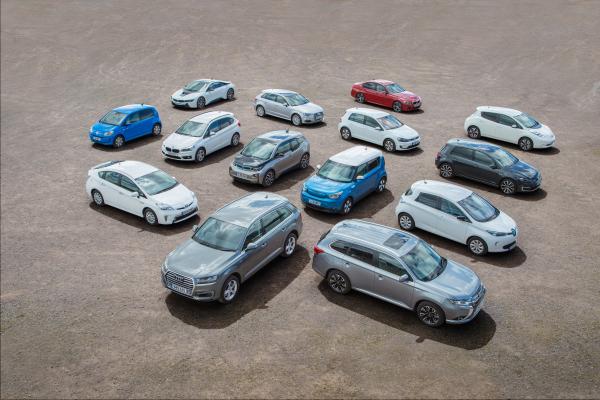A global initiative has been launched to promote the take-up of electric vehicles (EVs) within commercial fleets, which will see well-known brands integrate EVs into their operations and install workplace charging infrastructure.
Launched by the Climate Group, the organisation behind the RE100 and EP100 initiatives, EV100 is the only global campaign to encourage commitments from multinational businesses on electric transport. The UK already has a similar programme in Go Ultra Low, a public-private campaign that acknowledges and rewards companies that have included significant numbers of electric vehicles on their fleets, with a commitment to add more before 2020.
Companies joining the scheme are asked to make a public commitment to fast-track EV uptake in one or more of the following four commitment areas by 2030:
Integrating electric vehicles directly into owned or leased corporate fleets:
- 100% of vehicles up to 3.5 tonnes to be EV
- 50% of vehicles between 3.5 tonnes and 7.5 tonnes to be EV
Placing requirements in service contracts for electric vehicle usage:
- Daily rental
- Contracted taxi providers
- Car sharing
Supporting staff to use electric vehicles (by installing workplace charging infrastructure):
- Appropriate set of charging infrastructure installed at all relevant premises
- Dedicated information and awareness program / appropriate incentive schemes to promote EV usage and reduce the cost of switching to an electric vehicle
Supporting electric vehicle uptake by customers (by installing customer charging infrastructure):
- Appropriate set of charging infrastructure installed at all relevant premises
- Dedicated customer engagement program to promote EV usage
Helen Clarkson, chief executive of the Climate Group, said: “We want to make electric transport the new normal. There are two fundamental problems to be addressed. Transport is still the fastest growing area of carbon emissions, as the shift to electric vehicles is not happening fast enough; and mass system change, even with government intervention, needs much greater customer demand.
“EV100 will use companies’ collective global buying power and influence on employees and customers to build demand and cut costs. The members…see the business logic in leading a faster transition and addressing local air quality issues in their markets. They are setting a competitive challenge to the auto industry to deliver more EVs, sooner and at lower cost.”
The first ten members have already been announced – Baidu, Deutsche Post DHL Group, Heathrow Airport, HP, IKEA Group, LeasePlan, Metro AG, PG&E, Unilever and Vattenfall – and will be expected to set out their future EV purchasing requirements to 2030.
The intention is for these big purchasers to drive mass roll-out, reduce costs, and make electric cars more rapidly affordable for everyone around the world, while boosting the provision of charging infrastructure necessary to accommodate more EVs.
Initiatives already announced include international leasing company LeasePlan committing to transition its own fleets as well as those of its customers as part of its ambition to achieve net zero emissions from the corporate automotive sector by 2030.
Meanwhile HP has committed to roll out their workplace charging scheme internationally, Vattenfall is working to transition its corporate fleet to EVs over the next five years, and Unilever and Heathrow Airport have pledged comprehensive action as part of their prominent corporate sustainability plans.






